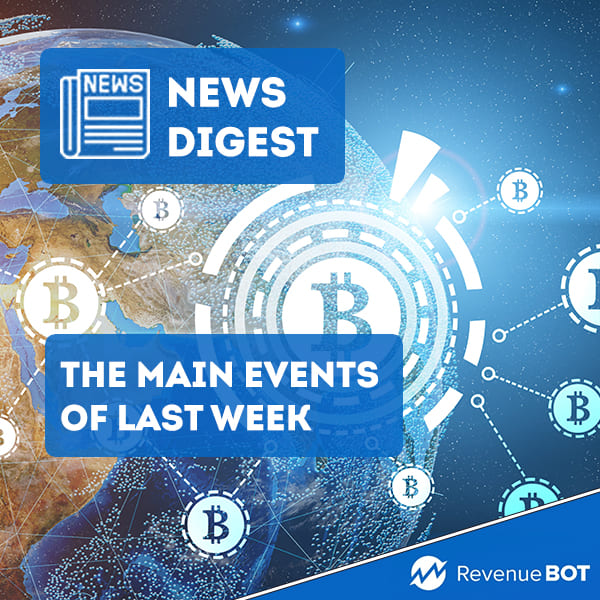
Friday, February 18. As the week comes to an end, we can focus on the highlights of the crypto industry over the past few days.
JPMorgan opens a representative office in the metaverse
JPMorgan has established a financial holdings lounge in the Decentraland meta-universe. This virtual office has been named Onyx.
The bank unveiled the lounge area in the Metajuku mall, along with a report in which experts assessed the business opportunities of this segment. JPMorgan states that they are the first among large enterprises that decided to open a representative office in the metaverse.
”The metaverse will likely infiltrate every sector in some way in the coming years, with the market opportunity estimated at over $1 trillion (€880 billion) in yearly revenues.
As a result, we see companies of all shapes and sizes entering the metaverse in different ways, including household names like Walmart, Nike, Gap, Verizon, Hulu, PWC, Adidas, Atari and others, ” the company notes in the report.
The company reports that total spending on virtual goods has reached $54 billion per year. Over the six-month period of 2021, the average price in metaverses has doubled.
Netflix to make a docuseries about crypto thieves
Netflix streaming service has announced the release of a documentary series about bitcoin thieves from the 2016 Bitfinex exchange. The series will be about married couple Ilya Lichtenstein and Heather Morgan.
As a quick recap, in 2016 there was a hacking attack on the Bitfinex crypto exchange, which resulted in the theft of 119,754 BTC. At today’s exchange rate, the amount is worth approximately $4.5 billion. Over five years, the couple laundered the stolen money through a variety of complex schemes.
On February 8, Lichtenstein and Morgan were detained. They are charged with conspiracy to launder money and defraud the United States. Now the couple faces up to 25 years in prison.
AI masters flirt and can confess its love
London-based startup Sonantic has developed an artificial intelligence algorithm that can flirt, chat up and confess their love. It can also express subtle emotions by using sighs, pauses, and light laughter.
The developers have published a short video on their YouTube channel, which involved a real actress starring, but the voice was entirely that of an AI. The voice-over is a monologue about love, the video ending with the voice confessing that it is not a real human.
Throughout the development of the flirty AI, researchers identified some tricks that make people sound more attractive, such as slowing down to build tension, smiling lightly during a conversation to sound more likable, and keeping a calm, steady pace of speech to create a strong sense of control and confidence. As they said, this significantly improved the realism of the synthesized speech.
Sonantic also showcased the program interface used to create the voice. Here the user can adjust intonation, change the pace, style, and rate of the speech, or add different sounds between words.
Sonantic’s voice synthesis is already being used in the production of Hollywood movies and video games. Their voice models could already express joy and sadness and, now, they can be flirty. Aside from flirting, the team also developed coy and teasing “styles” of speech.
Mastercard to expand crypto and NFT consulting services
The global payments company Mastercard has declared an expansion of its consulting service focused on emerging financial technologies, including cryptocurrencies, CBDC and NFT.
Mastercard plans to hire more than 500 juniors and college graduates to supplement the 2,000 engineers and consultants working in its data and services department. The department provides services to customers in 70 countries.
The company mentioned that its digital asset advisory services range from early education, risk assessment, strategy development for crypto and NFTs to the launch of payment cards and loyalty programs based on them.
According to their statement, Mastercard has also partnered with digital technology firms. This helps fintech companies enter new markets and commercialize their strategies.
In addition, Mastercard has emphasized assistance to central banks in studying and implementing CBDC as another area of its consulting service. For this purpose, the company provides the institutions with a testing platform, which allows them to “research various scenarios before deployment, and drawing on deep expertise around payment systems, policy and regulation, and governance.”
